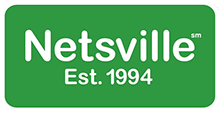I’d imagine Facebook now looks back fondly on 2016, when their greatest PR disaster involved reporting incorrect video metrics. This year, by contrast, has seen them plagued by negative headlines and thrown into the spotlight of not just the media industry, but the whole world.
Allegations of foreign interference in elections, massive data breaches, concerns about content on the platform and its impact on people’s mental health barely scratch the surface of growing public concern around social platforms. Major players now have no choice but to stand up and take action.
Here, we look at efforts made across Facebook, Instagram, Twitter and Snapchat to address several widespread issues that are impacting all users of social media today, including marketers seeking positive environments in which to connect with customers and prospects.
Privacy
Data privacy isn’t a new concept, but the scandal surrounding Cambridge Analyticaillegally obtaining data on millions of Facebook users without their permission turned it into a hot topic. As digital marketers, it’s easy to assume that people know that there’s a trade-off when they use a social platform for free — that the company’s business is sustained by gathering their data and selling it to advertisers. But that will no longer cut it; people want to know exactly what information about themselves is being shared, and with whom.
Since the scandal broke, Facebook has greatly limited the amount of user data now available to apps and instituted a more comprehensive review process for app developers. It also launched a tool that allows users to delete apps in bulk from their Facebook accounts.
Earlier this year they also removed Partner Categories as targeting option for advertisers, which were built on 3rd party data from providers such as Experian and Oracle. This isn’t the type of data under the most scrutiny — no illegal use of this type of data has been made public — and the move has caused frustration among brands and agencies alike that what was a highly effective targeting option is now much more difficult to access. It is still accessible, after all, but Facebook just removed itself from the data-broker role and put the onus on advertisers to develop direct relationships with those data providers.
All-in-all it’s something of an empty gesture with no real impact on how people’s data is being used, but when you’re looking down the barrel of the biggest PR disaster in your company’s history, drastic steps have to be taken.
Facebook was fined £500,000 by Britain’s data watchdog (the maximum amount allowable) for breaches of the Data Protection Act, but, had the breach occurred after the GDPR came into effect, the fine would have been closer to £2 billion. And while Q2 saw revenue and user growth decline, CEO Mark Zuckerberg assured us that this was to be expected. He has stated that they are investing so heavily in security and user privacy initiatives that it’s going to impact their profitability, and that user loss was expected in the wake of GDPR.
Facebook is a business and its primary goal will always be driving revenue, but all signs point to user privacy moving much higher up their priority list as consumers, and their representatives in government, make it clear that this needs to occur.
Fake news
The widespread proliferation of fake news during the 2016 US elections highlighted a key issue with social platforms – how much of what you see can you believe? Clickbait and bots are a long-running problem, but when “bad actors” were seen to have an impact on the democratic process of the most powerful nation on Earth, major social platforms began to take action.
Both Facebook and Twitter have imposed much stricter regulations on political ads, including labels for advertisers on behalf of political candidates, who must self-identify and be verified as located in the relevant country. (Google has also tightened its rules, unveiling a political ad transparency report and a library of political ads.)
For the 2018 mid-terms, foreign nationals are forbidden from targeting political ads to users in the US. And this demand for more transparency has spread beyond just political advertisers – users now have the ability to see every ad run from a particular Facebook page or Twitter handle, whether they fall into the category of users originally served the ad or not.
Read More at Marketing Land.
Based in Rochester, New York, Netsville is an Internet Property Management company specializing in managing the Digital Marketing, Technical, and Business Solutions for our customers since 1994. For more information, please click here.

